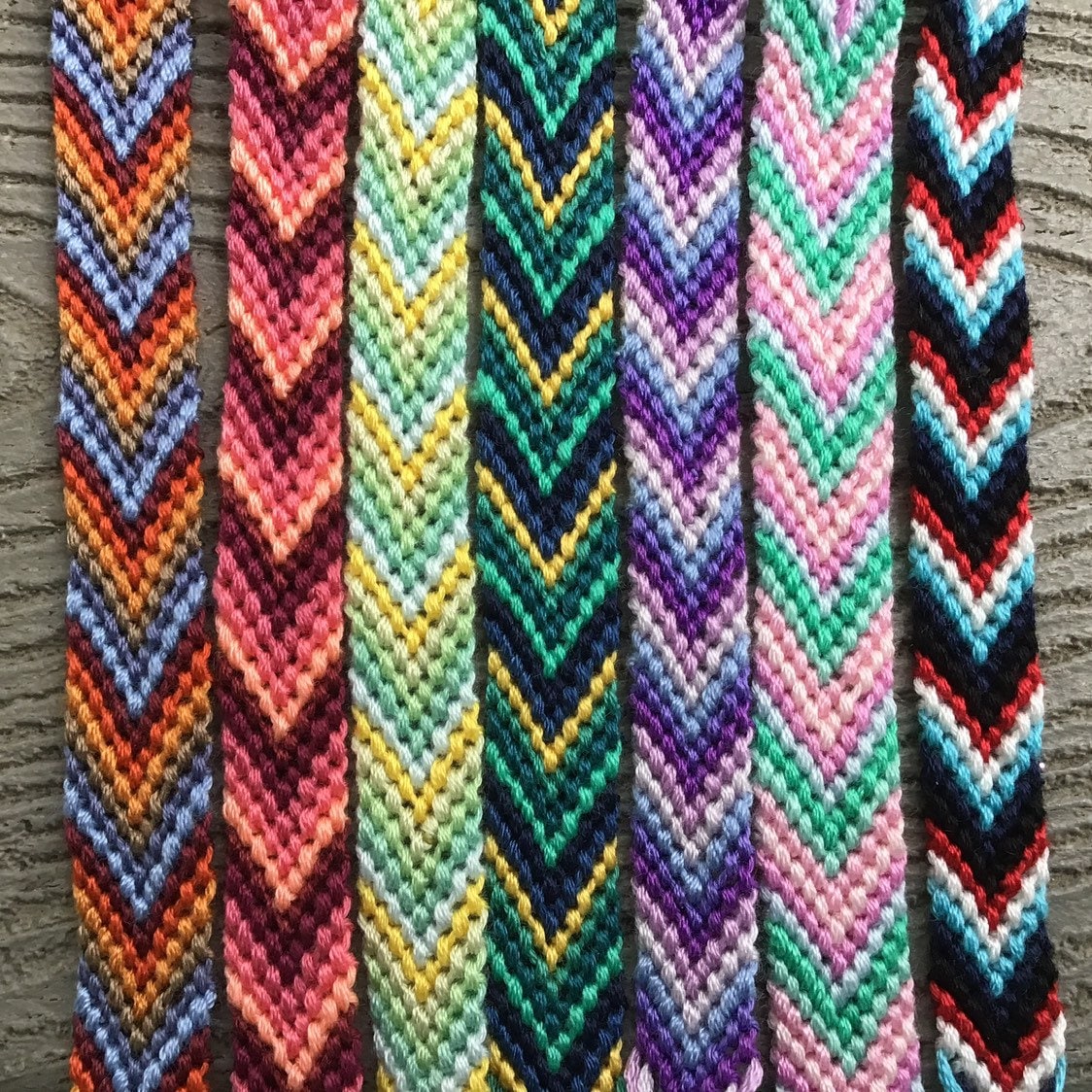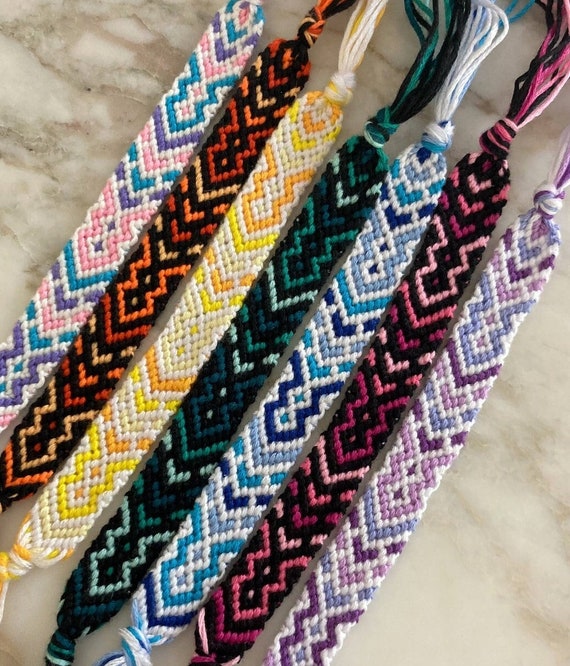
Introduction
Bracelets are a versatile and stylish accessory that can elevate any outfit, and one of the key elements in creating a statement wrist is to master the art of color combinations. From vibrant hues to subtle tones, choosing the right color combos for your bracelets can effortlessly enhance your overall look while reflecting your personal style. In this comprehensive guide, we explore the nuances of bracelet color combinations, providing insights into how to pair different colors, metals, and materials to curate a sophisticated and harmonious wristwear collection.
Part 1: Understanding Color Theory
Level 1: The Psychology of Colors
Colors evoke emotions and perceptions, making them a powerful tool for self-expression. Each color carries its own symbolism and meaning, and understanding the psychology behind colors is essential in creating impactful bracelet combinations that resonate with your personality and style.
Level 2: Complementary vs. Contrasting Colors
In color theory, complementary colors are those that are opposite each other on the color wheel and create a harmonious contrast when paired together. On the other hand, contrasting colors are those that are not typically found together but create a bold and striking combination when worn side by side.
Part 2: Pairing Metals and Materials
Level 1: Mixing Metals
Mixing different metal tones, such as gold, silver, and rose gold, allows for a modern and eclectic bracelet stack. When done intentionally, mixing metals can add depth and dimension to your wristwear, creating a dynamic and sophisticated look.
Level 2: Incorporating Textures and Materials
Incorporating various textures and materials, such as leather, beads, and gemstones, provides visual interest and adds a unique touch to your bracelet combinations. Combining different textures can create a multi-dimensional and eye-catching wrist ensemble.
Part 3: Embracing Monochromatic Themes
Level 1: Monochromatic Elegance
Embracing a monochromatic theme involves pairing bracelets within the same color family or shade. This approach exudes elegance and simplicity while allowing for versatility and coordination with a wide range of outfits.
Level 2: Playing with Shades and Tones
When opting for a monochromatic look, consider playing with various shades and tones within the same color family. This adds depth and sophistication to your bracelet stack, allowing for a cohesive yet visually stimulating display.
Part 4: Creating Balanced Color Schemes
Level 1: Balancing Warm and Cool Tones
Balancing warm and cool tones in your bracelet combinations creates a harmonious and visually pleasing ensemble. Pairing warm-toned bracelets, such as yellows and oranges, with cool-toned bracelets, such as blues and greens, achieves a balanced and well-coordinated look.
Level 2: Utilizing Neutral Anchors
Incorporating neutral-colored bracelets, such as black, white, or beige, acts as an anchor in your color scheme, allowing for the seamless integration of bolder and more vibrant hues into your wristwear collection.
Part 5: Reflecting Personal Style and Aesthetics
Level 1: Personal Expression Through Color
Your choice of bracelet color combinations serves as a form of personal expression, allowing you to communicate your individuality and aesthetics. Whether you prefer bold and vibrant hues or understated and muted tones, your bracelet combinations should reflect your unique style and personality.
Level 2: Adapting to Occasions and Moods
Consider adapting your bracelet color combos to fit different occasions and moods. Vibrant and playful color pairings may be suitable for casual outings, while more subdued and elegant combinations may be preferred for formal events or professional settings.
Part 6: Seasonal Color Trends
Level 1: Understanding Seasonal Color Palettes
Fashion and accessories often follow seasonal color trends, with specific color palettes associated with different times of the year. Understanding these color trends can help you create bracelet color combinations that are not only stylish but also in sync with the prevailing seasonal aesthetics.
Level 2: Incorporating Seasonal Accents
Embracing seasonal color trends allows you to incorporate relevant accents and touches into your bracelet combinations. For example, incorporating warm, earthy tones in autumn or vibrant, tropical hues in summer can effectively enhance your overall look and reflect the essence of the season.
Part 7: Harmonizing with Skin Tone and Attire
Level 1: Choosing Colors that Complement your Skin Tone
Considering your skin tone when selecting bracelet color combinations is crucial in creating a harmonious and flattering look. Understanding whether you have warm, cool, or neutral undertones can guide you in choosing colors that complement and enhance your natural complexion.
Level 2: Coordination with Attire and Accessories
Your bracelet color combinations should also complement your wardrobe and other accessories. Coordinating your bracelets with the colors of your outfit, as well as other accessories such as watches or rings, creates a cohesive and polished overall appearance. This intentional coordination ensures that your bracelets are seamlessly integrated into your ensemble and contribute to a harmonious visual effect.

A Comprehensive Understanding of Colors
These additional parts contribute to a comprehensive understanding of how colors, trends, and personal elements can influence the creation of attractive and truly personalized bracelet color combinations. Mastering the art of bracelet color combinations is a delightful and creative process that allows for endless opportunities to craft a unique and impactful personal style. By understanding color theory, embracing seasonal trends, and harmonizing with personal elements such as skin tone and attire, you can curate bracelet combinations that effectively express your individuality, elevate your overall look, and leave a lasting impression.
Whether you prefer bold and vibrant hues, subtle and understated tones, or a balanced mix of both, the key lies in embracing your personal style and leveraging color combinations to communicate your aesthetic sensibilities. By experimenting with various pairings of metals, materials, and textures, you can curate a dynamic and visually captivating wristwear collection that seamlessly complements your wardrobe and reflects your personality.
In essence, the art of bracelet color combinations transcends fashion; it is an avenue for self-expression, creativity, and originality. Embrace the spectrum of colors, styles, and trends available, and use them as tools to curate a wristwear collection that speaks to your unique identity and resonates with your individuality. Let every bracelet combination be a canvas for your personal expression and an embodiment of your distinctive style.
Conclusion
Mastering the art of bracelet color combinations allows for endless possibilities and opportunities to elevate your style and express your personality through your wristwear. Understanding color theory, pairing metals and materials, embracing monochromatic themes, creating balanced color schemes, and reflecting personal style are essential in curating a cohesive and visually captivating bracelet collection. By experimenting with different color combinations and embracing the versatility of bracelets, you can effortlessly enhance your overall look and make a bold fashion statement that is uniquely yours.


